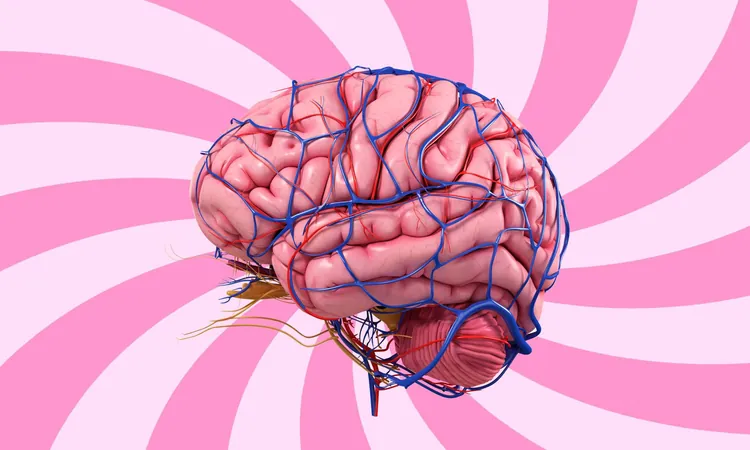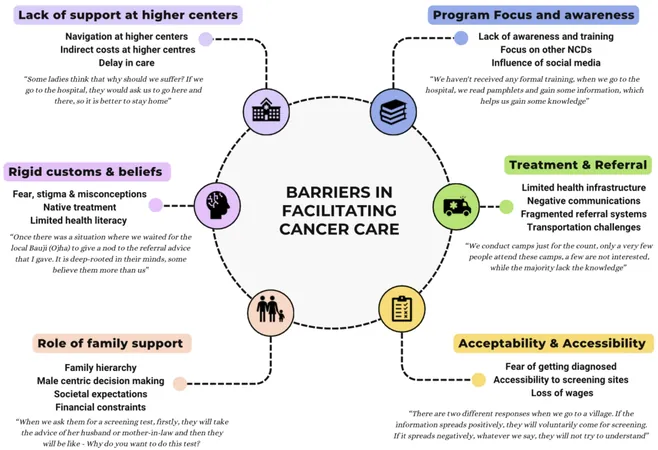
Poor Sleep in These Two Stages Could Be a Gateway to Alzheimer's, New Study Reveals
2025-04-08
Author: Wei
Alzheimer’s Disease Challenges
Alzheimer’s disease remains one of the most formidable challenges in the realm of healthcare. While its specific causes remain elusive, a multitude of factors—including abnormal protein aggregations in the brain, genetic predispositions, and various environmental influences—are thought to contribute to this debilitating disorder. In a newly released study, researchers have identified a significant connection between inadequate sleep during particular stages of the sleep cycle and the heightened risk of developing Alzheimer’s.
Alzheimer's is a progressive brain disorder characterized by severe cognitive decline and memory loss. It is the leading cause of dementia among older adults, adversely affecting not only mental health but overall physical well-being as well. Without a cure in sight, early intervention and effective management strategies become crucial for slowing the disease's progression.
The Mystery of Alzheimer’s Causes
Alzheimer's has been under the microscope for decades, and while a single cause has yet to be established, experts agree that it results from a complex interplay of various elements. These include the accumulation of toxic protein deposits within the brain, natural aging processes, genetic factors, and lifestyle choices. Importantly, recent research highlights a disturbing trend: disrupted sleep may significantly exacerbate the risk of developing Alzheimer's.
Understanding Sleep Cycles
To grasp the link between sleep patterns and Alzheimer’s, it's essential to first understand the stages of sleep:
Stage 1: This is light sleep occurring shortly after falling asleep, and it lasts only 1 to 5 minutes. The body begins to relax, and muscle tone diminishes.
Stage 2: This stage is characterized by a deeper level of sleep, lasting approximately 25 minutes, as the body continues to relax further.
Stage 3: Often referred to as slow-wave sleep, this is the deepest stage where vital restorative processes occur within the body, such as regularizing heart rate and breathing patterns.
Stage 4 (REM Sleep): In this phase, which is marked by rapid eye movement, breathing becomes irregular, and heart rate can vary significantly as the brain becomes more active.
The Study: Sleep and Alzheimer's
A significant study published in the Journal of Clinical Sleep Medicine over a period of 13 to 17 years delves into the critical relationship between sleep and the brain's regions associated with Alzheimer’s. Employing advanced polysomnography, the researchers examined sleep architecture alongside neurological assessments through MRI scans to gauge brain volume and identify signs of microbleeding.
Key Findings
The remarkable conclusion drawn from this study is that a decrease in both slow-wave and REM sleep phases can lead to diminished volume in the brain’s inferior parietal region, an area crucial for cognitive functions. Prior research indicates that sleep plays an essential role in clearing toxins from the brain. The authors of this latest study propose that insufficient sleep might precipitate neurological atrophy, thereby heightening the risk for neurodegenerative diseases, including Alzheimer’s.
Implications of the Findings
These findings underscore the importance of maintaining quality sleep throughout our lives. Ensuring adequate and restorative sleep may serve as a protective measure against cognitive decline and associated neurodegenerative disorders. Experts recommend adopting healthy sleep habits from an early age, emphasizing that proactive steps can mitigate long-term risks.
Conclusion
As we delve deeper into the complexities of Alzheimer’s, the revelation that sleep quality is essential to brain health becomes increasingly clear. Individuals may want to reassess their sleep practices and prioritize restorative rest to safeguard their cognitive future. Stay tuned for more updates on health and wellness—every choice we make today could influence our wellbeing tomorrow!



 Brasil (PT)
Brasil (PT)
 Canada (EN)
Canada (EN)
 Chile (ES)
Chile (ES)
 Česko (CS)
Česko (CS)
 대한민국 (KO)
대한민국 (KO)
 España (ES)
España (ES)
 France (FR)
France (FR)
 Hong Kong (EN)
Hong Kong (EN)
 Italia (IT)
Italia (IT)
 日本 (JA)
日本 (JA)
 Magyarország (HU)
Magyarország (HU)
 Norge (NO)
Norge (NO)
 Polska (PL)
Polska (PL)
 Schweiz (DE)
Schweiz (DE)
 Singapore (EN)
Singapore (EN)
 Sverige (SV)
Sverige (SV)
 Suomi (FI)
Suomi (FI)
 Türkiye (TR)
Türkiye (TR)
 الإمارات العربية المتحدة (AR)
الإمارات العربية المتحدة (AR)